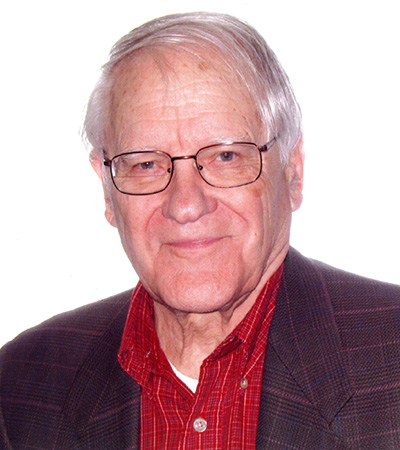In memoriam: Arnis Kuksis
Arnis Kuksis, a professor emeritus at the University of Toronto who studied the complex mechanisms dictating lipid metabolism, died Sept. 2. He was 96 and had been a member of the American Society for Biochemistry and Molecular Biology from 1976 to 2018.

Born Dec. 3, 1927, in Valka, Latvia, Kuksis chose to pursue higher education in North America; after arriving in the United States with the support of a Lutheran World Federation Scholarship, he earned bachelor and master of science degrees from Iowa State University and a Ph.D. in biochemistry from Queen's University in Kingston, Ontario in 1956. He remained in Ontario for his postdoctoral studies at the Royal Military College, then returned to Queen's to join J.M.R. Beveridge’s lab as a research associate in lipid biochemistry.
After he was promoted to assistant professor of biochemistry at Queen’s, Kuksis' research focused on the analysis and characterization of triglycerides and phospholipids. He pioneered the use of high-temperature gas chromatography to resolve molecular species of triglycerides from natural fats and oils, a technique that became a standard in lipid research. His work extended to steryl esters and glycerophospholipids, enhancing the understanding of lipid structures and their metabolic pathways.
Kuksis authored numerous publications that had a significant impact on the field of lipid biochemistry. His research on the metabolism of molecular species of diacylglycerophospholipids and the lipid analysis of glycoinositol phospholipid membrane anchors are among some of his most cited works. He authored or co-authored over 370 original articles, 100 invited reviews and book chapters, and he wrote the book "Inositol Phospholipid Metabolism and Phosphatidyl Inositol Kinases." He edited or co-edited six books.
Kuksis served as a career investigator for the Medical Research Council of Canada from 1960 to 1997 and was the director of the MRC Regional Mass Spectrometry Facility at the Banting and Best Department of Medical Research, University of Toronto, from 1972 to 1997. In 1997, he was named professor emeritus at the University of Toronto.
In addition to his research, Kuksis was a dedicated mentor, supervising numerous doctoral and master's students and postdoctoral fellows.
Kuksis was preceded in death by his wife of more than 70 years, Inese, and his son Lauris. He is survived by his children Anda, Davis and Inga; seven grandchildren, and six great-grandchildren.
His family wrote in an obituary, “Our father was a stoic, modest man, a counsellor, coach, poet and role model. He will be remembered for his humour, generosity and guidance.”
Enjoy reading ASBMB Today?
Become a member to receive the print edition four times a year and the digital edition monthly.
Learn moreGet the latest from ASBMB Today
Enter your email address, and we’ll send you a weekly email with recent articles, interviews and more.
Latest in People
People highlights or most popular articles

Simcox wins SACNAS mentorship award
She was recognized for her sustained excellence in mentorship and was honored at SACNAS’ 2025 National Conference.

From humble beginnings to unlocking lysosomal secrets
Monther Abu–Remaileh will receive the ASBMB’s 2026 Walter A. Shaw Young Investigator Award in Lipid Research at the ASBMB Annual Meeting, March 7-10 in Washington, D.C.

Chemistry meets biology to thwart parasites
Margaret Phillips will receive the Alice and C. C. Wang Award in Molecular Parasitology at the ASBMB Annual Meeting, March 7-10 in Washington, D.C.

ASBMB announces 2026 JBC/Tabor awardees
The seven awardees are first authors of outstanding papers published in 2025 in the Journal of Biological Chemistry.

Decoding how bacteria flip host’s molecular switches
Kim Orth will receive the Earl and Thressa Stadtman Distinguished Scientists Award at the ASBMB Annual Meeting, March 7–10, just outside of Washington, D.C.

Thiam elected to EMBO
He was recognized during the EMBO Members’ Meeting in Heidelberg, Germany, in October.

